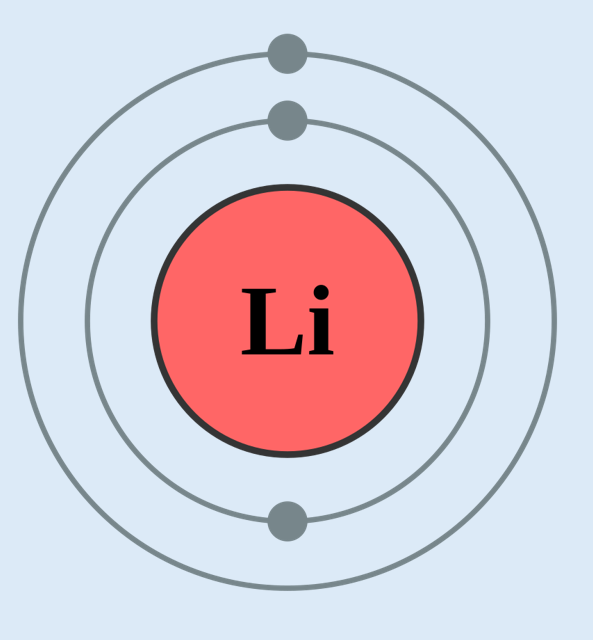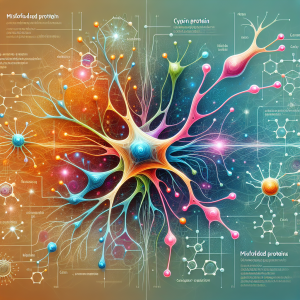
Lithium’s Emerging Role in Alzheimer’s Treatment: New Insights and Developments
You may play this song while reading this blog
The battle against Alzheimer’s disease (AD) has taken on a bright glimmer of hope thanks to lithium, an old medication that is now being recognized for its potential neuroprotective properties. Recent research suggests that lithium could hold the key to modifying the progression of Alzheimer’s, and may lead to new innovative treatment strategies. This exploration of lithium’s role in Alzheimer’s therapy showcases the intriguing possibility of a well-known medication being repurposed for new frontiers in healthcare.
Understanding the Challenge of Alzheimer’s
Alzheimer’s disease is a progressive neurological disorder that leads to memory loss, cognitive decline, and ultimate incapacity. As the disease progresses, it not only affects the person suffering but also places a heavy emotional and financial burden on their families and healthcare systems worldwide. Despite significant advancements in our understanding of Alzheimer’s pathophysiology, effective treatments remain scarce. This fuels the continuing search for therapeutic strategies that can halt or slow the disease’s progression.
The Historical Context of Lithium
Lithium has been utilized as a mood stabilizer for decades, primarily in the treatment of bipolar disorder. Its use in neurology stems from its ability to interact with various neural pathways, providing stabilization that extends beyond mood disorders. The recognition of lithium’s broader neuroprotective capabilities has opened the door to its potential application in treating neurodegenerative diseases such as Alzheimer’s.
The Science Behind Lithium’s Application
Recent studies, such as those published in Frontiers in Pharmacology, and meta-analyses have demonstrated lithium’s ability to impact Alzheimer’s pathology positively. This is achieved through several biochemical mechanisms, including:
- Reduction of amyloid-beta and tau protein levels, critical in Alzheimer’s progression.
- Enhancement of synaptic plasticity, promoting better neural communication.
- Inhibition of neuroinflammation and oxidative stress.
- Preservation of mitochondrial function, which is crucial for cell energy production.
The therapeutic potential is underpinned by lithium’s ability to act on multiple neuropathological targets, thereby offering a multitargeted approach that could be more robust than current single-target therapies.
Clinical Trials and Emerging Evidence
Clinical trials evaluating lithium’s effects on Alzheimer’s patients have shown promising outcomes. According to other studies, lithium treatment in Alzheimer’s mouse models demonstrated significant therapeutic benefits, including the stabilization of various AD-associated abnormalities. Most notably, it improved cognitive function and could serve as an effective co-therapeutic.
Moreover, ScienceDirect highlights that lithium’s neuroprotective effects could be crucial in establishing a disease-modifying treatment for Alzheimer’s, thus potentially altering the course of the disease substantially.
Despite encouraging results, optimizing lithium dosages for maximum efficacy and minimizing potential side effects remains a key focus in the ongoing research.
Future Directions and Considerations
Lithium’s repurposing for Alzheimer’s therapy represents a paradigm shift in how we view existing treatments for neurodegenerative diseases. As more research unravels the intricate mechanisms at play, the scientific community remains cautiously optimistic.
Understanding the significance of lithium’s role could pave the way for more comprehensive trials in different populations and stages of Alzheimer’s disease, while accounting for both genetic and environmental factors.
Finally, the navigation of regulatory pathways for re-approval of lithium in a new therapeutic context remains an ongoing journey. Collaboration between researchers, pharmaceutical companies, and regulatory bodies will be pivotal in ensuring lithium’s novel therapeutic benefits reach patients who could benefit the most.
In summary, while lithium’s journey from a psychiatric medication to a potential cornerstone in Alzheimer’s treatment is still unfolding, the signs are promising. As science delves deeper into the mysteries of Alzheimer’s, treatments like lithium may offer a beacon of hope for millions worldwide.



